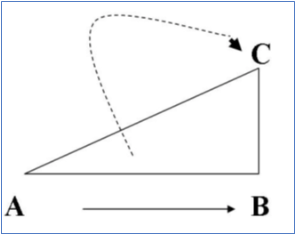Want a competitive edge… that very few understand or can implement?
Then here’s the ticket.
Because when writing an email, sales letter, or any ad copy, there’s ONE guiding principle that should ALWAYS be at work… either consciously or just under the surface.
 The idea comes to us courtesy of a guy who owns an island in Venice.
The idea comes to us courtesy of a guy who owns an island in Venice.
And to show you this genius is worth listening to, he’s written 57 books, was a Rhodes scholar, has a PhD in medicine, a D.Des (Doctor of Design), a Doctor of Philosophy degree, and an honorary law degree.
Not only that…
… He’s held faculty appointments at the universities of Oxford, Cambridge, London and Harvard.
He’s also a professor at Malta, Pretoria, Central England, and Dublin City University.
His name is Edward DeBono, and he’s been teaching “thinking skills” since the dawn of time (1969).
The kinds of books he writes are: The Use of Lateral Thinking; New Think; The Five-Day Course in Thinking; The Mechanism of Mind; Lateral Thinking: Creativity Step by Step.
In other words, he’s no slouch.
But the point here is there’s ONE simple thing he mentioned in one of his books that formed the core foundation of EMAIL ALCHEMY… and the amount of money it’s made.
The Subtle HOOK to Keep Readers Engaged …
It’s from the book, Serious Creativity.
In it, DeBono talks about the patterns our brains tend to follow in order to simplify our lives.
 He used the example of telling a joke… where at the beginning, we’re moving along an EXPECTED pathway.
He used the example of telling a joke… where at the beginning, we’re moving along an EXPECTED pathway.
For instance, let’s say your mind is heading toward a conclusion… like going from point A to point B in this little chart.
But something happens along the way.
Suddenly, and unexpectedly, you’re at point C!
At first you don’t know what happened.
Here’s what DeBono says:
“It’s precisely this phenomenon of asymmetry which gives rise to both humor and creativity.
In telling a joke we are taken along the main track. Suddenly we are shifted to the end of the side track and immediately we see the track we might have taken:
Husband: If I were married to you, I should put poison in your coffee.
Wife: And if I were married to you, I should drink the coffee.”
DeBono calls it a “sudden shift in perception” that initially throws us off balance, but then just as quickly, makes sense again.
And here’s the takeaway.
There’s a little dose of PLEASURE in arriving unexpectedly at point C!
In fact, as I’ve thought about this principle, I’ve realized that most people don’t really WANT to be going down the expected track in the first place!
They may say they want to.
They may live their lives like they want to… by choosing boredom and drudgery.
But deep down, they LOVE the unexpected, the new, and the unusual.
 Need proof? Let’s say you’re going to a movie.
Need proof? Let’s say you’re going to a movie.
You’ve heard it’s a real thriller and you’ve been planning to go all week.
Then, just as you’re going out the door, a friend calls.
You mention the movie you’re going to… and the worst possible thing happens.
Without the courtesy of a spoiler alert… HE BLURTS OUT THE ENDING!!!
There’s nothing worse. You want to strangle the guy.
But let’s say your friend hadn’t called, and you went to the movie without a clue.
This principle is still at work.
Because if you’re happily watching and suddenly, you figure out the ending before you get there… it’s almost as bad.
You think it was a crummy movie… too predictable.
It’s my contention this process is at work ALL THE TIME… ESPECIALLY when customers are reading your emails or sales copy.
The Secret of SECONDARY REWARD …
In other words, it’s why you should be looking for twists and turns that are just outside the lines, just off the beaten track, and just slightly off center…
… So the reader is never quite able to get ahead of you and into their usual, predictable rut.
And this makes your e-mails A PLEASURE to receive and read.
Besides moving them along the path to the sale or through a story, the word choices, metaphors, idioms, and similes provide a dual track and a SECONDARY benefit or reward… just for reading your message.
 Their minds are receiving little bits of the unexpected… and it’s PLEASURABLE.
Their minds are receiving little bits of the unexpected… and it’s PLEASURABLE.
Sort of like the insidious dopamine release when getting a message on social media or your cell phone.
Not quite like biting into a double-chocolate cake… or winning the lottery…
… But there are little doses of pleasure along the way… an unsuspected morphine drip they want more of.
Of course, part of the art to this “double-sales track” is that you can’t be too blatant or obvious… or your clumsy attempts will stand out like a bull snake in a bathtub.
In NLP, they’d probably call these mini pattern interrupts.
But whatever the terminology, it’s IMPOSSIBLE to be as suspicious when you’re ENJOYING yourself.
And the mind, no matter how hard it’s trying to doubt… can’t resist these minor mental pleasures as they diffuse and break down buying resistance… over and over and over.
A Quick Case Study in Secondary Reward …
Subject Line: “Rats Deserting Email Riches.”
The subject line’s primary job is to grab the reader’s attention with a pattern interrupt. So we tap into, and twist, a familiar phrase that everyone’s heard, “Rats Deserting the Ship”.
The twist on “deserting the ship,” is like one of those little doses of pleasure for the brain, as it’s suddenly on an unfamiliar track. Your curiosity is aroused, and you just have to know who’s a rat, and why they’re deserting the ship.
A subject line should also transmit a relevant benefit to the reader, hence the term, “Email Riches.” The mention of “Email,” obviously tells you it’s about email, and the “Riches” tells you it’s about making money.
This may seem like a lot of thinking for just a subject line, but it happens fast with a little practice. Think 1) pattern interrupt, 2) curiosity, 3) relevant benefit.
OK, here’s more from the actual email…
Dear Sarah,
Like rats deserting the U.S.S. MONEY…
This first line is an open loop… a half thought that continues the metaphor, thus pulling the reader into the email.
Misled entrepreneurs are bailing out on email.
They see “the light” way off in the distance… the shimmer of Facebook… the sheen of Twitter… and the sparkle of SEO and Adwords.
Metaphors are the perfect persuasion tool, allowing you to reframe any idea, concept or thought in your favor. They also stimulate the imagination and are inherently pleasurable. As is the pleasing cadence and rhythm created by the alliteration — seeing the light shimmer… sheen… sparkle…
And then there’s the ultimate glow… like the sun rising in the east…
… Of glorious VIDEO! Yes! Yes! Yes!
Finally, the treasure map they’re hopelessly seeking.
You see how the metaphor denigrates the use of VIDEO to position email as the superior choice?
Just fire up the camera and you’re halfway there… with instant pieces-of-eight to roll around in.
That should give you a small example of how to think while you’re writing… and the way the DeBono principle should always be at work.
You want the copy to “feel” just a little off center… slightly outrageous… with a dose of the unexpected…
… But not so much that it draws attention AWAY FROM THE SALE… which is like shooting yourself in the foot.
Getting the right “feel” takes practice and balance… but it’s a LEARNABLE skill… NOT some mysterious gift great copywriters are born with.
A Simple Skill-Acceleration Strategy …
Which brings me to a related aspect of this “off-center” and “unexpected” pleasure principle.
And it has to do with accelerated learning and creativity.
The more you WORK at creating UNEXPECTED ASSOCIATIONS, the better your writing will become.
You’ll also be more creative, which is a kind of intelligence… so you’ll be smarter, too!
And coincidentally, in the book, Advertising Secrets of the Written Word, legendary marketer, Joe Sugarman, talks about the value of using Edward DeBono’s techniques for marketing.
He says:
“Edward DeBono, one of the great creative thinkers of our time, came up with the term “lateral thinking” to describe the process of coming up with ideas by not focusing or thinking just about the problem.
“Often, by relating the problem to something that has nothing to do with the problem, a new idea emerges.”
 Then Joe talks about DeBono’s “Think Tank,” which is an 8” sphere that contains 14,000 small words on small plastic pieces.
Then Joe talks about DeBono’s “Think Tank,” which is an 8” sphere that contains 14,000 small words on small plastic pieces.
You shake the sphere and look into it and write down the first 3 words you see.
Then the trick was to relate the 3 words to your marketing problem, and come up with new insights and solutions to solve it. Sugarman says:
“One of the most important keys in copywriting and conceptualizing is the ability to relate totally divergent concepts to create a new concept.”
It’s what we’re doing writing emails about the news, or relating our product to various other themes and topics… as master copywriter Robert Collier recommends: to enter the conversation that’s already occurring in your prospect’s mind.
And with emails, where you mail at a high frequency instead of just one ad every now and then, you have a MUCH HIGHER NEED for mastering secondary reward.
But you’ll develop the skill by working at these types of association games.
You can also strengthen this skill DRAMATICALLY by practicing memory techniques, like the strategies Daniel demonstrated in one of his earlier courses, Steal These Secrets.
It’s a FABULOUS exercise to strengthen your “association muscles,” which will bear fruit in unexpected areas of your life… besides making your emails more powerful and profitable.
Give it a try… and leave your comments below.
We appreciate your feedback.
I never thought about this with copywriting but it’s true that putting someone a little off center is pleasing for example to compliment a girl for her beautiful nails you can say you have beautiful claws. Which is not what the girl would have expected.
Hi
This is indeed well thought-out strategies to use when writing copy
and other correspondence, to: have people react in a certain way.
well done.